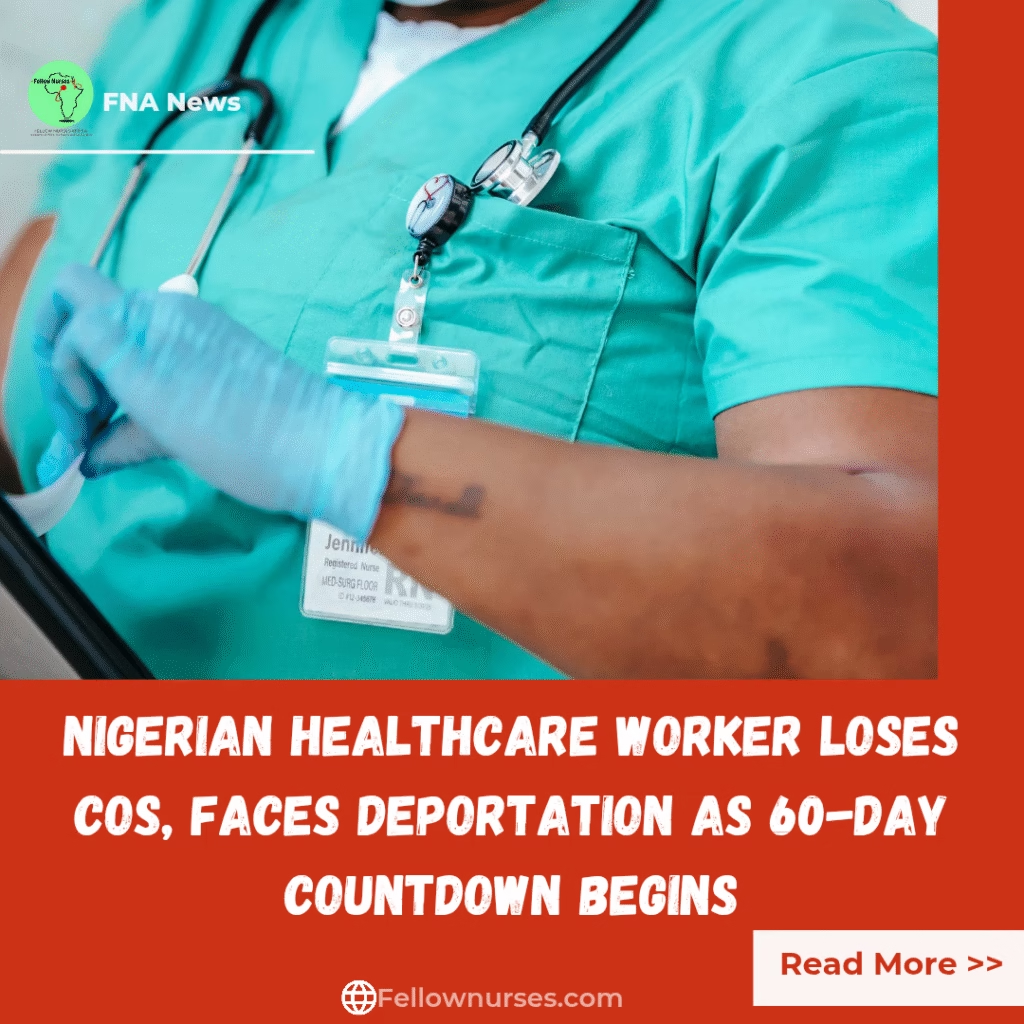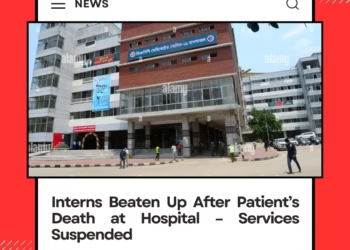
Nigerian Healthcare Worker Loses CoS, Faces Deportation as 60-Day Countdown Begins
Fellow Nurses Africa News Desk | September 15, 2025
A Nigerian healthcare worker in the UK faces deportation after losing his Certificate of Sponsorship (CoS) following a series of driving offences and a workplace misconduct case. His story, first shared on a Lunch Club live stream, has sparked difficult conversations about the vulnerabilities faced by migrant caregivers navigating life in the UK.
A Dream of Stability, Now in Crisis
Ochuko (surname withheld), a father of three, arrived in Preston, Lancashire, in early 2023 with his wife and children on the Health and Care Worker visa. Like many international recruits, the family sold their home in Nigeria to pursue stability and long-term residency through work in the UK’s care sector.
At a residential home supporting vulnerable young people and adults, Ochuko was initially praised for his empathy and dedication. But within two years, a series of personal missteps led to professional and legal consequences that now threaten to uproot his family’s dream.
Driving Struggles and Legal Breaches
For many new migrants, adapting to UK driving regulations is a major hurdle. International driving permits are valid for just 12 months; after that, a full UK licence must be obtained through the DVLA process.
Ochuko attempted the UK driving test but failed several times. Balancing night shifts, long hours, and childcare responsibilities, he postponed further lessons and continued driving illegally on his expired Nigerian permit.
This decision caught up with him in August 2025. Acting on a workplace report, Lancashire Police stopped him during a routine patrol while he was driving his children to school. Officers discovered:
- His Nigerian driving permit had expired over 18 months earlier.
- He had no valid insurance tied to a UK licence.
- His children were travelling without proper car seats, breaching child safety laws.
The stop led to immediate penalties: more than £500 in fines (£300 for no valid licence, £200 for child safety breaches), six penalty points on a provisional record (which could escalate to a driving ban), vehicle impoundment, and a court summons to Preston Magistrates’ Court.
Workplace Misconduct and Dismissal
In September 2025, Ochuko’s situation worsened when a safeguarding issue arose at his workplace. During a support session with a 16-year-old patient battling anorexia, he reportedly told her: “You’re so beautiful, I’d marry you if I could.”
Though described as misguided encouragement, the remark caused severe emotional distress. The patient later referenced it in a suicide note after an overdose attempt.
The care home launched an immediate investigation, dismissed him for gross misconduct, and referred the matter to safeguarding authorities and the Home Office.
With his job terminated, the CoS that underpinned his visa was automatically revoked. Within 10 days, the Home Office curtailed his Health and Care Worker visa, triggering a 60-day countdown to either secure new sponsorship or leave the UK.
A Family’s Dream Unravels
The consequences have left Ochuko’s family in turmoil. Without his income, they face financial hardship, uncertainty about housing, and the looming possibility of forced return to Nigeria.
Speaking in tears, his wife said:
“We poured our souls into this new life—now it’s crumbling.”
Currently sofa-surfing and relying on community support, the family’s once-bright vision of stability in the UK has turned into an anxious wait for what comes next.
Broader Lessons for Migrant Healthcare Workers
While Ochuko’s actions are his responsibility, his case highlights wider challenges faced by international healthcare workers in the UK:
- Legal and cultural adaptation: Navigating driving rules, safeguarding standards, and professional boundaries is often overwhelming without adequate support.
- Visa fragility: Losing a job tied to a CoS places entire families at risk of deportation within weeks.
- Workplace pressures: Long hours, cultural adjustment, and family stress can compound vulnerabilities for migrant workers.
As the UK continues to rely heavily on international recruitment to sustain its care sector, this story raises questions about the need for stronger support systems to help overseas workers avoid pitfalls that can upend their futures.
Fellow Nurses Africa is the independent voice of African nursing, we educate, inform and support nurses across Africa










